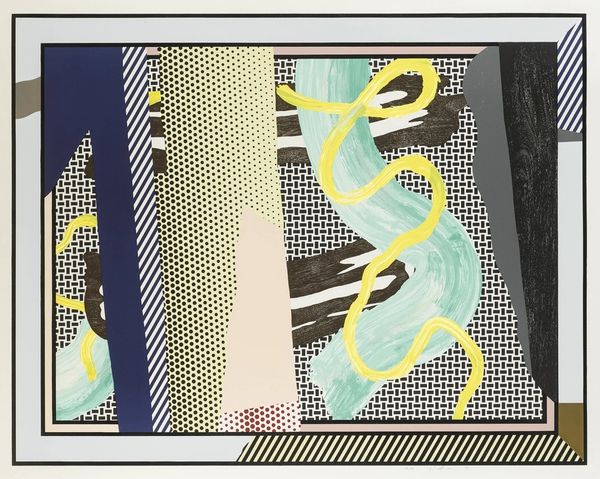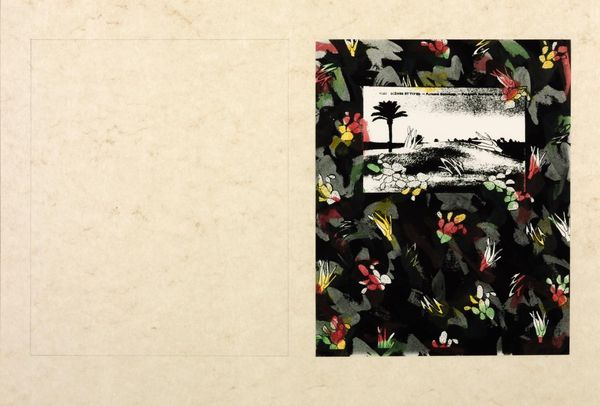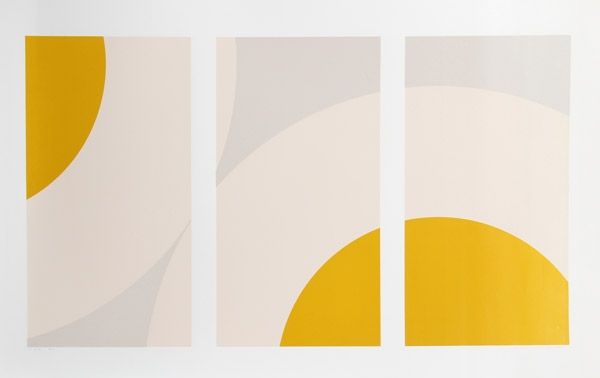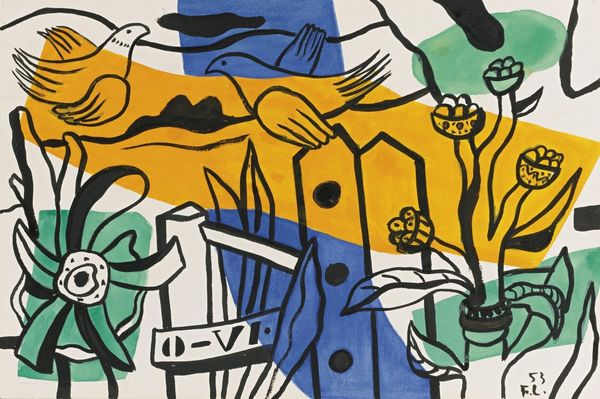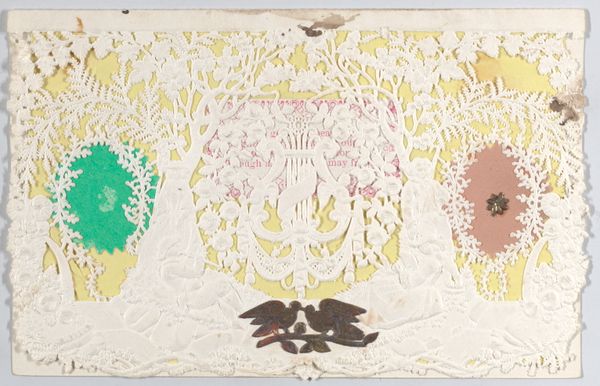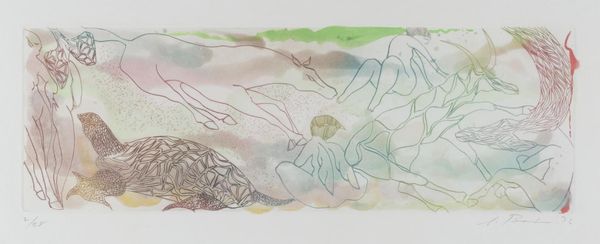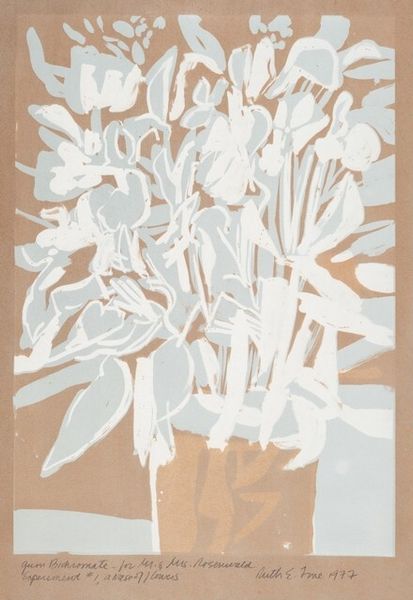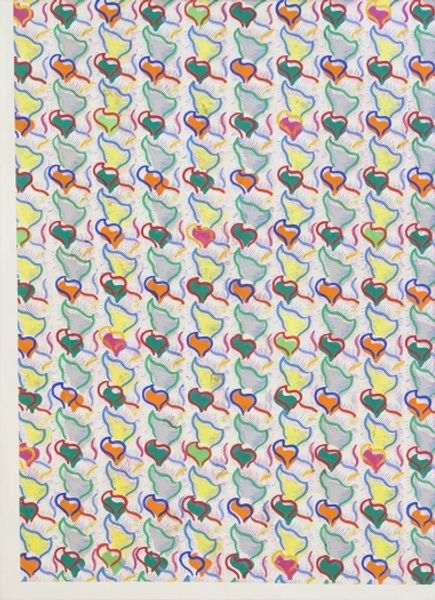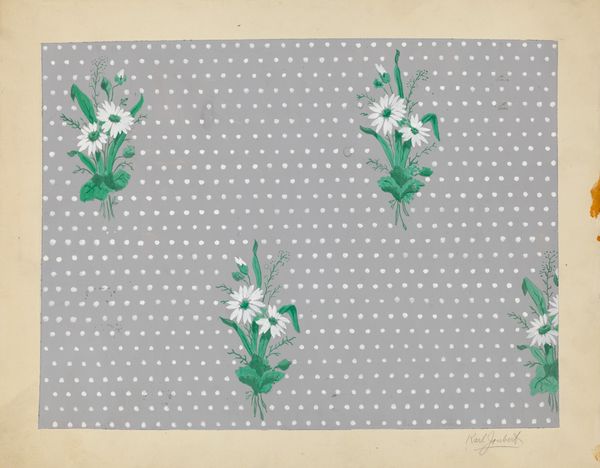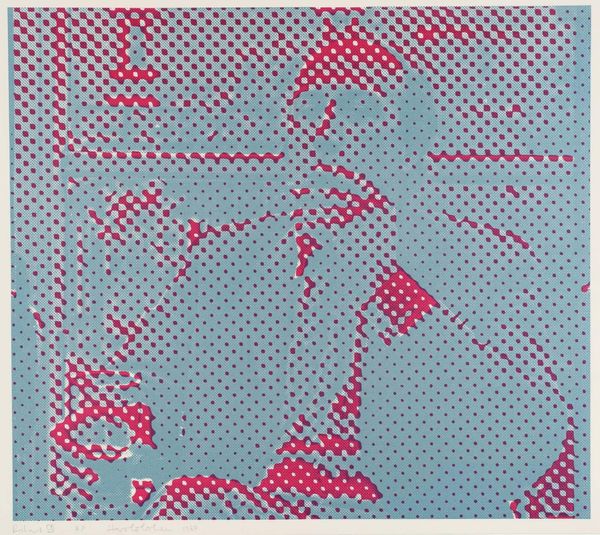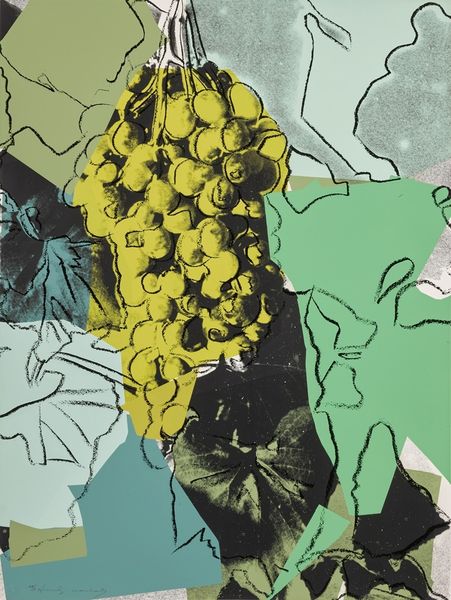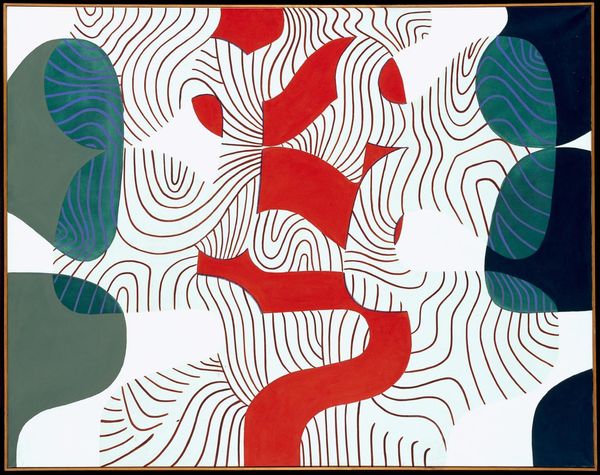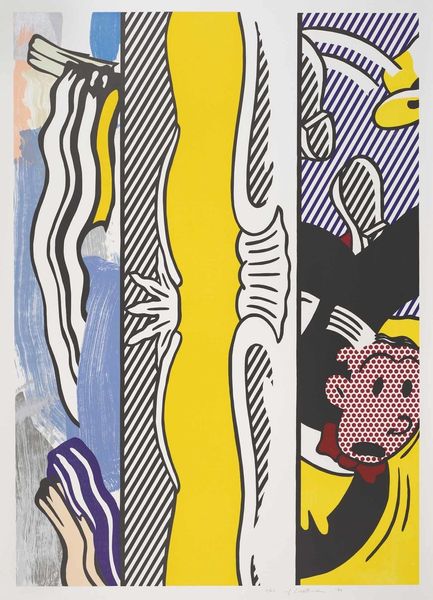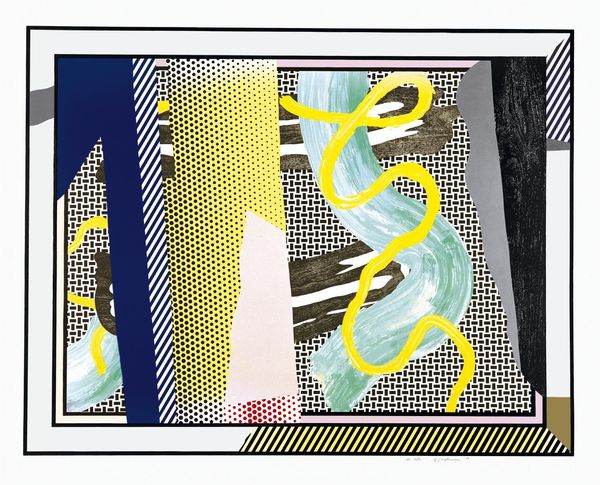
Copyright: Modern Artists: Artvee
Curator: What an intriguing remix of the familiar! Roy Lichtenstein's "Water Lily Pond with Reflections," created in 1992 using acrylic paint, immediately strikes one as both reverent and subversive. Editor: My initial impression is a playful subversion of serenity. It feels so cool, detached even, compared to Monet's romantic haze. The water itself, broken up by the Ben-Day dots, is almost hostile. Curator: Indeed! It’s as if Lichtenstein is dissecting the cultural memory of Impressionism itself. These water lilies—such a potent symbol of fleeting beauty—are rendered in his signature comic-strip style, simultaneously paying homage and questioning the very notion of artistic originality. Editor: Absolutely, the strategic use of geometric patterns and those ubiquitous dots transforms something organic and flowing into rigid forms. There’s a tension between representation and abstraction here. The dots feel like a screen, or a filter through which we are forced to view the subject, creating critical distance. Curator: That distance is key. Lichtenstein masterfully uses appropriation to ask: how do images become iconic? How do we consume them? The flatness, the hard edges, even the deliberately limited color palette are all employed to strip away sentimentality and highlight the artifice. Editor: And in that deconstruction, a new kind of visual poetry emerges. He’s taken Monet’s emotional depth and created a strangely compelling surface, inviting us to contemplate the mechanics of seeing, representation, and our own expectations when encountering this iconic subject. Curator: It does encourage one to reconsider the weight that these inherited images carry—not only aesthetically but conceptually. The very idea of nature idealized, filtered through the lens of popular culture. Editor: I agree, I’ll certainly think of seriality when I’m staring at the genuine article next time. Curator: Well, looking closely at Lichtenstein's work today is almost like seeing Monet again for the first time. Editor: An excellent point! It also made me reconsider Lichtenstein's process of artmaking with some fascination.
Comments
No comments
Be the first to comment and join the conversation on the ultimate creative platform.
